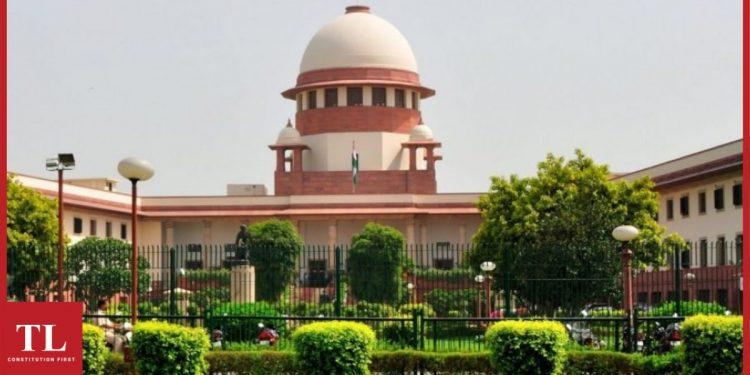SC’s Refusal to Recall Its 2015 Judgment Against RBI Will Make Banks Accountable Under RTI

Commenting on the Supreme Court’s dismissal of applications by private and public sector banks to recall its 2015 judgment in which the RBI was directed to release its annual inspection reports and loan defaulters list under the RTI Act, RAJA MUZAFFAR BHAT writes, by drawing on his own crusade for transparency against the Jammu and Kashmir Bank, about the importance of banking institutions being held accountable before citizens.
—-
Recently the Supreme Court dismissed multiple pleas filed by several private and public sector banks asking it to ‘recall’ its judgment pronounced in 2015 wherein the Reserve Bank of India (RBI) was directed to release in the public domain its annual inspection reports and loan defaulters list under the Right to Information Act, 2005 (RTI Act). The Supreme Court, in its 2015 judgment, had held that the RBI was duty-bound to uphold the interest of the public at large, the depositors, the country’s economy and the banking sector.
The petition, filed by several banks, seeking the recall of its 2015 judgment, was heard by a Supreme Court division bench of Justices L Nageswara Rao and Vineet Saran. The banks argued that the apex court’s 2015 judgment had not considered important legal and constitutional provisions. They said that the order was violative of the right to privacy, which has been held to be an inseparable part of the fundamental right to life and personal liberty under Article 21 of the Constitution of India as per its Justice K.S. Puttaswamy judgment.
The division bench noted that the plea, styled as ‘recall’ applications, were in essence ‘review’ petitions.
“A close scrutiny of the applications for recall makes it clear that in substance, the applicants are seeking a review of the judgment in Jayantilal N.Mistry (supra). Therefore, we are of the considered opinion that these applications are not maintainable. We make it clear that we are not dealing with any of the submissions made on the correctness of the judgment of this Court in Jayantilal N Mistry,” the court observed.
The court further opined that the RBI must act with transparency and not hide information that might embarrass banks and that it is duty-bound to comply with the provisions of the RTI Act and disclose the information. While examining its previous judgment, the court also held that there was no provision in the Supreme Court Rules for a recall of the judgment.
The court added that parties should not be allowed to file applications to reopen concluded judgments of the court.
Also read: RBI allowed to defy Supreme Court order and RTI Act
Background of the case
The Supreme Court judgment of 2015 relates to the denial of information under the RTI Act by the RBI.
One of the main respondents in the case before the Supreme Court in which it gave the judgment in question in 2015, is an RTI activist named Jayantilal Mistry, who sought information from the RBI about a Gujarat-based cooperative bank. The information pertained to the release of its annual inspection reports.
The RTI application was filed in October 2010 before the RBI’s designated Central Public Information Officer (CPIO). The RBI, however, did not provide the requested details.
Mistry then filed an appeal before the designated First Appellate Authority (FAA) of the RBI. On March 30th, 2011, the FAA disposed of the appeal by upholding the order of the CPIO.
Mistry ultimately took the matter before the Central Information Commission (CIC). The CIC, in its judgment dated 1st November 2011, directed the RBI to provide information before 30th November 2011.
Aggrieved by the decision of the CIC, the RBI filed a writ petition before the Delhi High Court to request quashing of the CIC’s judgment. The High Court, while issuing notice, stayed the operation of CIC’s order. The matter was finally challenged before the Supreme Court of India.
Information sought under RTI
There were multiple RTI applications filed before the RBI seeking inspection reports of various public and private sector banks, alongside a list of bank loan defaulters.
Between May and June of 2010, a statutory inspection of the Makarpura Industrial Estate Cooperative Bank Ltd in Gujarat had been conducted by the RBI under the Banking Regulation Act, 1949. Subsequently, in October 2010, Mistry had sought the information on the following points from the RBI via an RTI application:
1. Procedure, rules and regulations of inspection being carried out on cooperative banks.
2. Last RBI investigation and audit report carried out by Shri Santosh Kumar from 23rd April 2010 to 6th May 2010 sent to the Registrar of the Cooperative of the Gujarat state.
3. Last 20 years inspection report carried out in Makarpura Industrial Estate Cooperative Bank Ltd along with names of inspectors and action taken report.
4. Reports on all cooperative banks gone on liquidation plus action taken against all Managers and Directors for recovery of public funds and powers utilized by RBI and analysis and procedure adopted.
5. Names of remaining cooperative banks under your observation for irregularities and action taken reports.
6. Specify the time period required to take action and implementation.
To the first question, the CPIO said that RBI was conducting the inspection under section 35 of the Banking Regulation Act, 1949 at regular intervals. The second question was not answered, with the CPIO invoking section 8(1)(a) and (e) of the RTI Act to claim that that information was held by the RBI under fiduciary relationship, and thus could not be revealed under the transparency law.
For the third and fourth questions, the same exemption clause was invoked by the CPIO, and to the final two questions, the CPIO simply responded with “no specific information has been sought.”
Struggle to seek information from J&K Bank
Banks have always tried their best to deny information to people under the RTI Act. Even public sector banks, or those controlled or owned by the Government, have claimed that they were not public authorities.
This author has fought a long battle with the Jammu & Kashmir (J&K) Bank as the management of the bank has long argued that the RTI Act does not apply to it. The full bench of the erstwhile J&K State Information Commission (SIC), in a detailed judgment, had declared the J&K Bank as a public authority in 2012.
However, the J&K Bank, like the RBI, stayed the operation of the SIC’s order. The matter was taken up before the J&K High Court, which, for almost six years, did not decide the case. Finally, the J&K administration decided to expressly bring this bank under the ambit of the RTI Act.
Pertinently, the J&K government is a majority shareholder in the bank, with a 59.3 percent stake. In 2018, when the J&K Bank sold its two non-performing assets (NPAs) of a few top business houses to an asset reconstruction company (ARC) at a 40 % discount, which worked out to Rs. 720 crores, I wrote a piece on the issue in a local English daily in January 2019, in which I demanded a probe into the matter.
A few days after the publication of the article, I was issued a show-cause notice by the legal wing of the J&K Bank asking me to apologize for bringing “disrepute” to the bank. When I refused to apologize and wrote a counter-response to the bank, a defamation suit for Rs. 50 crores were filed against me by the J&K Bank in a Srinagar court.
The court ordered that I should not write anything defamatory against the bank, which I never did!
During the hearing of the case, when the impugned article was placed before the Additional District and Sessions Judge, Srinagar, he made an open comment in the court that, raising issues related to transparency and accountability can’t be related to defamation. The counsel of J&K Bank could not utter a word in response.
When the defamation case was filed against me, the bank had already been brought under the RTI Act’s ambit by the-then State Administrative Council (SAC) headed by former Governor Satyapal Malik in November 2018. My claim about corruption and mismanagement in the J&K Bank was authenticated in June 2019, when the J&K Anti-Corruption Bureau (ACB) raided the bank’s corporate office. The Chairman of the bank was sacked by the J&K government a day before the raid, and very recently, he was arrested by the ACB in a separate matter.
Also read: RTI Act in J&K: A Missed Opportunity
J&K Bank continues to deny information
Even after all this, the J&K Bank continues to deny information under the RTI Act.
Some months back, a citizen named Mohammad Ramzan from Srinagar sought details of funds spent on advertisements by the J&K Bank. Through an RTI application, he asked for a list of beneficiaries like media houses, private channels, FM radio stations, newspapers, online news portals, and other media platforms, that were provided these advertisements against payment of huge money.
In his reply, the PIO of the J&K Bank corporate office said that the list of such beneficiaries could not be provided. He invoked various sub-sections of section 8 of the RTI Act.
Technically, the J&K Bank is supposed to make such a beneficiary list public through its website as mandated under section 4(1)(b) of the RTI Act. This clearly indicates that the bank is not ready to ensure transparency and openness, in spite of the fact that several cases against it are already pending before various anti-corruption agencies.
Ramzan filed an appeal before the FAA of the J&K Bank corporate office. The appeal has not been adjudicated till date.
“I am now planning to file a second appeal before the CIC as J&K Bank seems to have no plans to provide me the information,” Ramzan told The Leaflet.
Why banks must be transparent under RTI Act
Section 2(f) of the RTI Act defines the term ‘information’ under the RTI Act thus:
“Information means any material in any form, including records, documents, memos, e-mails, opinions, advices, press releases, circulars, orders, logbooks, contracts, reports, papers, samples, models, data material held in any electronic form and information relating to any private body which can be accessed by a public authority under any other law for the time being in force”
The Supreme Court, in its 2015 judgment against RBI, has also made a detailed reference to section 2(f) of the RTI Act.
The RBI collects inspection reports from various banks. Since these reports fall within the definition of ‘information’, the same must be provided to citizens. Ideally, the RBI should make these reports public through its website.
By dismissing the recall application, the apex court, in its supreme wisdom, has made it clear that citizens have every right to make banking institutions accountable, especially at a time when big loan defaulters lists and inspection reports are always kept confidential by banks.
(Raja Muzaffar Bhat is a Srinagar-based activist, columnist and independent researcher. He is an Acumen India Fellow. The views expressed are personal.)
The article was originally published in The Leaflet.
Get the latest reports & analysis with people's perspective on Protests, movements & deep analytical videos, discussions of the current affairs in your Telegram app. Subscribe to NewsClick's Telegram channel & get Real-Time updates on stories, as they get published on our website.
























